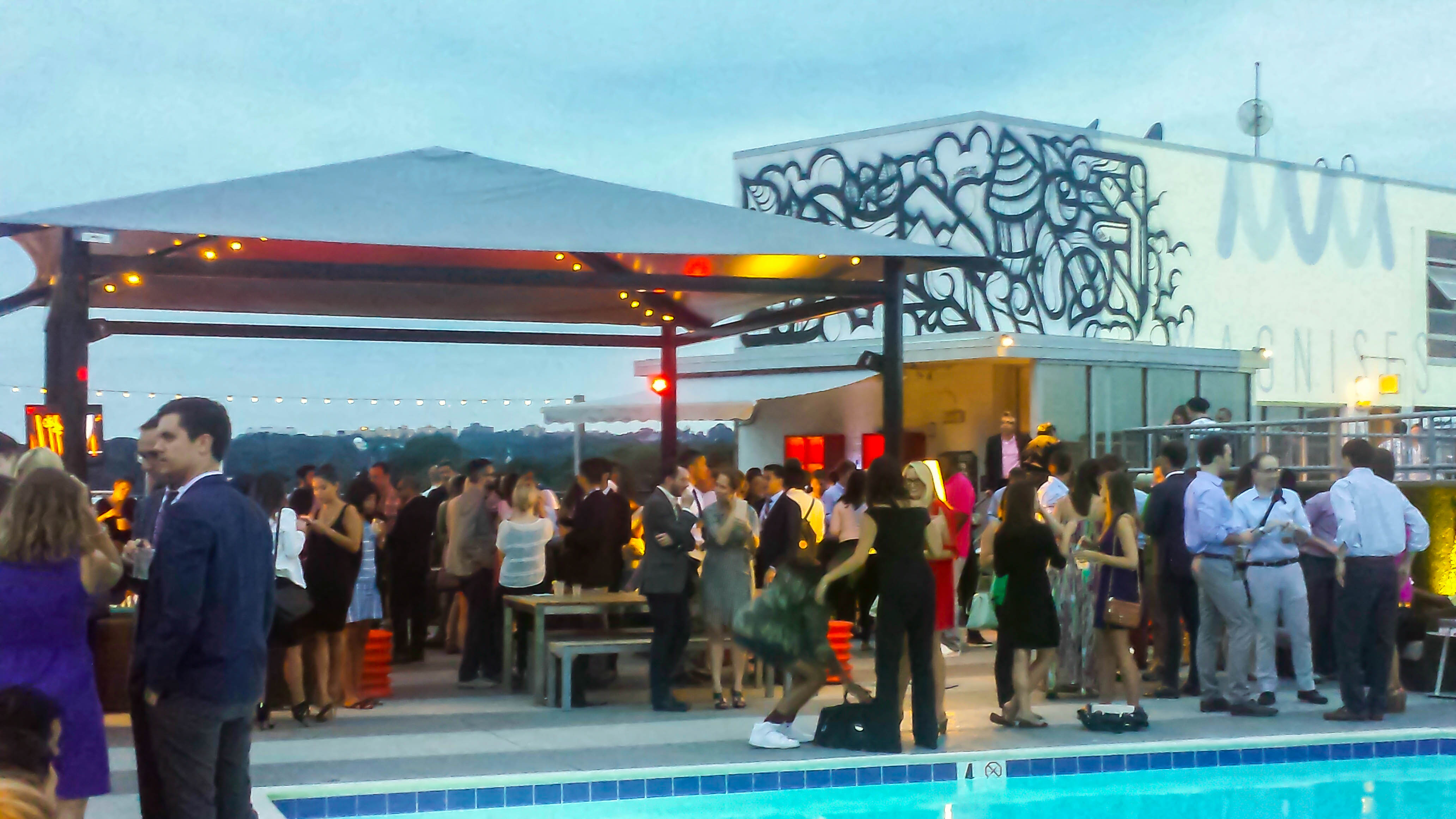WASHINGTON — Chris Beauregard, 25, recently found himself at a chic rooftop pool party in Washington. With the Capitol dome in the background, young professionals watched an exclusive Dar Be Dar by Tala Raassi summer fashion show while sipping complimentary DeLeón Tequila cocktails.
“I brought seven other friends with me,” says Beauregard. “Everybody had a blast.”
It’s a setting that is becoming common for a subset of the Millennial generation known as the “affluent Millennials.”
The 6.2 million 18- to 34-year-olds who report annual household incomes of more than $100,000 are acting out the aspirational lifestyle of their cohort because they have the financial means to do so, says Leah Swartz, a content specialist at FutureCast, a marketing firm focused on Generation Y.
“It’s not that they’re so different from Millennials,” says Swartz. “It’s that they’re acting on these aspirational trends that we see take shape in the general population.”
Many among the 80 million Millennials say that they eat organically and travel frequently, but a majority still live on a limited budget, hitting up big retailers for bargain prices.
Rather than focusing solely on what they can buy, Millennials create experiences and “shareable moments with friends,” Swartz says.
It’s a generation that was the first to embrace trends like going digital and using social, but it is the affluent among it that have more impact because they’re the ones commenting on review sites and engaging with brands on social media.
“We’re seeing them take on the influential role among the Millennial population,” she says, adding that affluent Millennials are 10 percent more likely to participate in online rating sites than their non-affluent peers.
“It’s likely because they can do more and because their budgets allow for it,” Swartz says.
Business and finance are the most common career paths for these people, but affluent Millennials are shifting post-graduate educational trends.
The research found that 44 percent of the 6.2 million affluent Millennials did not graduate from college. Of those that completed college and went on to graduate school, nearly 4 percent didn’t complete that education. While these numbers are high, affluent Millennials still graduate from college and grad programs at higher rates than their non-affluent counterparts.
“When you think of Boomers or even a little bit Gen-X,” Swartz says, “money was very much linked to degrees and higher education.”
But these Millennials don’t necessarily see the connection. FutureCast researchers in Kansas City found that young adults in the affluent subset are more interested in quickly putting the knowledge gained in their undergraduate programs to use in the workforce.
“They’re seeing more value in entrepreneurialism rather than continuing education,” Swartz says.
Billy McFarland, a 23-year-old tech entrepreneur, began his undergraduate education at Bucknell University planning on studying computer engineering. He dropped out after a year.
“I never really focused on school the way I should,” McFarland said in a phone interview. “But I finally went to college, I was living alone, and realized I could start companies full-time and not worry about school. It was an easy decision.”
Most recently, McFarland founded two companies: Spling, a tech-driven advertising platform, and Magnises, a mobile concierge app geared toward Millennials.
Magnises, McFarland says, has nearly 7,000 members stemming from 25,000 applicants. Approximately 90 percent of members using the app are 21 to 35 years old, with self-reported annual incomes of $50,000 to $250,000.
The $250-per-year membership comes with a black metal membership card, a community hangout out and the concierge app with recommendations on what to do with one’s free time and the ability to make a reservation at a suggested place. A reservation is waiting at the click of a button.
This generation travels more and values events, services and experiences over goods, says Milton Pedraza, CEO of the Luxury Institute, a global research firm focusing on luxury goods.
One example is SoulCycle, the trendy New York City-based fitness company hosting 45-minute spin classes that feel more like being on a dance floor than in a cycling studio. Millennials aren’t buying the expensive bike so they can go cycle the hillsides outdoors; they’re buying the experience.
Pedraza says he thinks Millennials are drawn to events they can share with “people who are their peers, who share their values, who share their standards of living and who share their tastes.”
But if Millennials are trendsetters, don’t they want to find the best places to go — and be first ones on the scene? Isn’t an app, such as Magnises, that suggests the hottest hangouts in some of America’s biggest cities and sends 20-somethings flocking in that direction kind of, well, mainstream?
“I think there’s recognition that that’s going to inevitably happen,” Pedraza says. “If something’s really good it’s going to be swarmed — Millennial swarmed.”


